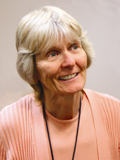Presentation: "Introduction: Agile in practice"
Time:
Wednesday 10:30 - 10:45
Location:
St James's Suite
Abstract: Scrum was introduced in 1993 and since then more than 15.000 IT professionals have obtained the title Certified Scrum Master after attending a Scrum Alliance Master class. The Scrum framework has been implemented by many both small and large organizations worldwide. XP was introduced by Kent Beck in 1999 in his book "Extreme Programming Explained" and has been adopted by hundreds of thousands of IT professionals worldwide since then. In 2001 the Agile Manifesto was written which embraces principles from both XP, Scrum and Lean.
This track will present the latest development within the agile practices. Leading practitioners will present and explain their latest experiences and pitfalls in implementing agile principles e.g. XP, Scrum and Lean Software Development.
Presentation: "Born to Cycle? An Agile Approach to Working"
Time:
Wednesday 14:30 - 15:30
Location:
St James's Suite
Abstract:
Agile development is not about doing a set of practices, it's about a way of "being," it's about learning. How is this learning accomplished?
We know that small increments that produce visible, usable progress toward a goal is a way for teams to work successfully in a chaotic environment. Does it work well because the individuals on the team are hardwired to work in cycles?
During this talk, we will examine what some have found in small experiments in their own lives and what this means for improving our own personal productivity and agility. In the "Fearless Change" patterns, we say that a useful metaphor is a journey. We recommend that you keep with you in your carry-on bag the following patterns: Test the Waters, Time for Reflection, Small Successes, and Step-by-Step.
The most important of these (although they are all important, and work together) is Time for Reflection. Without making space in our day for thinking about what is working well, what should be done differently, and what still puzzles us, we find our learning grinds to a halt, that not only do problems ***not*** get solved, but that we keep making the same mistakes over and over again.
By taking brief pauses after small experiments, even large problems can be solved. In a recent "Harvard Business Review" interview of Toyota's president, Katsuaki Watanabe, he observed, "...when 70 years of very small improvements accumulate, they become a revolution." That's agile!
Tutorial: "Patterns for Introducing Agile Practices"
Time:
Monday 09:00 - 16:00
Location:
Robert Burns Room
Abstract:
Those of you who are struggling to introduce agile development practices often find that you are not welcomed with open arms. Linda Rising provides you with proven change management strategies to help you become more successful. Learn what forces in your organization drive or slow change, and how to plant the seeds of change for buy-in and participation---from start to finish.
Bring your organizational and personal change challenges for practical help in this tutorial. Linda will discuss lessons as documented in the pattern language in her book (with Mary Lynn Manns), Fearless Change: Patterns for Introducing New Ideas. Join Linda to learn how to overcome adversity to change and to celebrate your improvement successes and your organization's new found practices.






